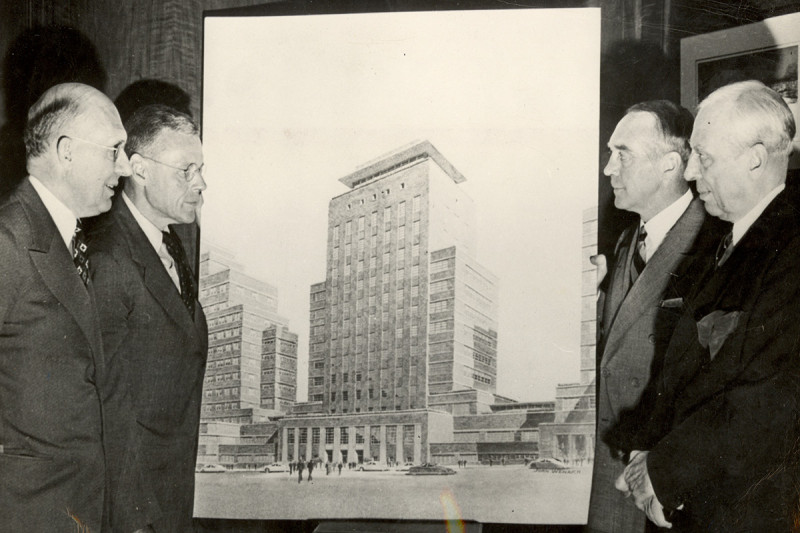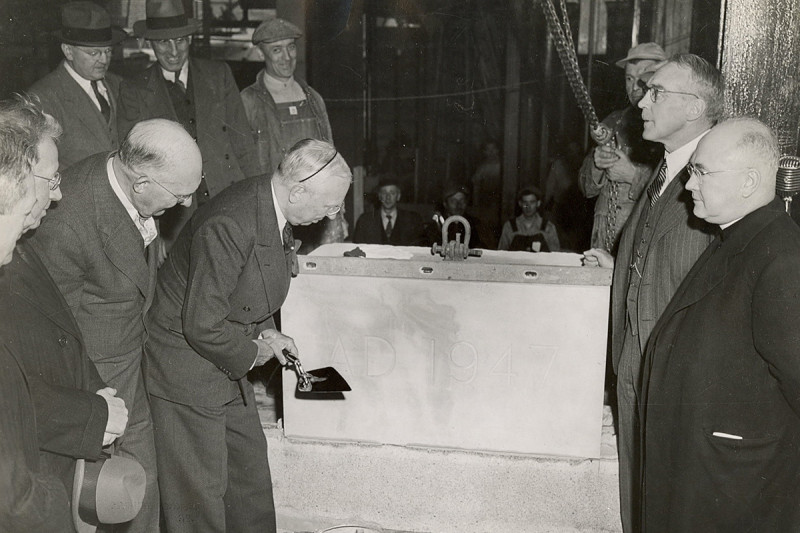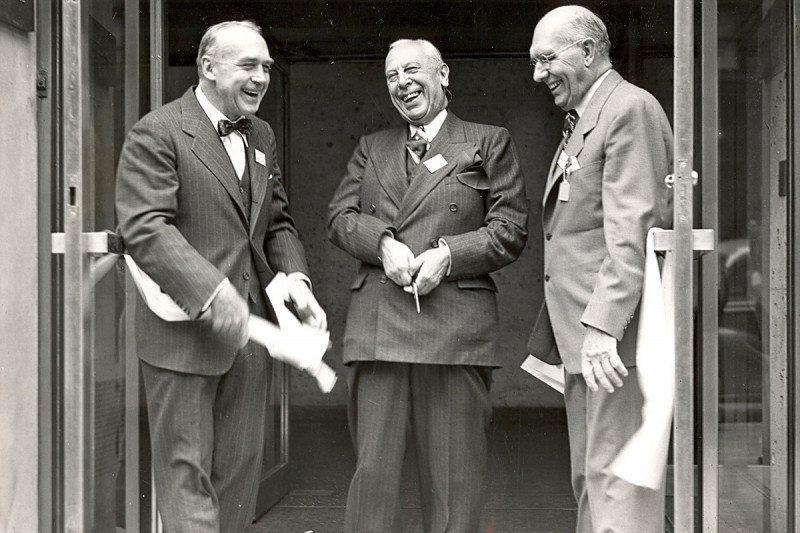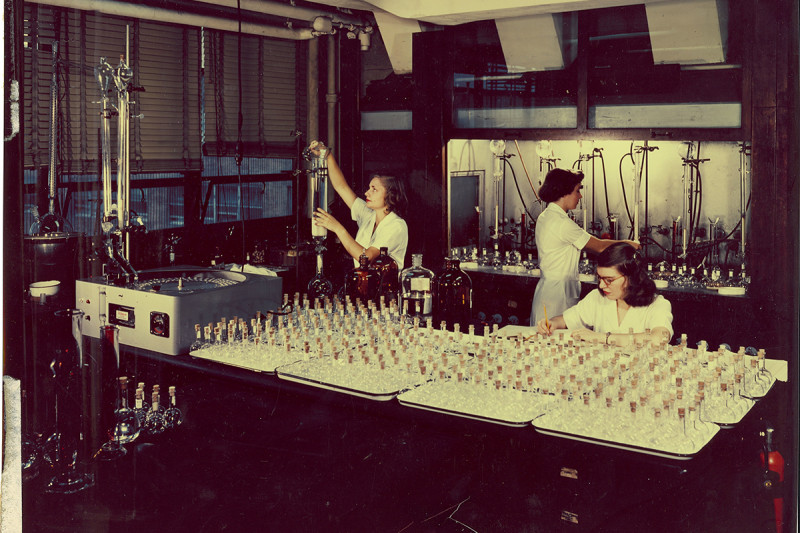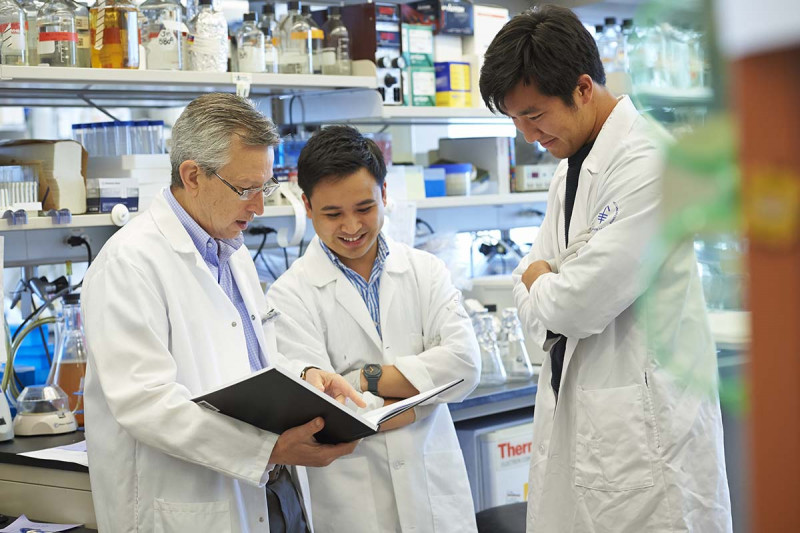Seventy years ago this month, philanthropist Alfred P. Sloan and inventor Charles F. Kettering announced the creation of the Sloan Kettering Institute for Cancer Research (SKI), with the vision of harnessing the latest industrial techniques to conquer cancer.
At the time, Mr. Sloan was chairman of General Motors and a trustee on the board of Memorial Hospital, and Dr. Kettering was vice president and director of research at General Motors. Mr. Sloan donated $4 million to launch SKI through his Alfred P. Sloan Foundation, and Dr. Kettering served as a member of the Committee on Scientific Policy.
The New York Times, which wrote about the development on its front page, explained that the institute had two goals: “to study the causes of cancer and to seek better cures for those many forms of cancer that now resist treatment. Some day, it is hoped, it may be possible to devise a test that will show whether a person is susceptible to cancer or not.”
The announcement, which came the day after the bombing of Hiroshima in 1945, noted that like the research program that developed the atomic bomb, research efforts that were “scientifically organized” could make rapid progress — in this case in the fight against cancer.
An Astute Vision
When it was originally created, SKI was a separate entity from Memorial Hospital, with its own management and its own board, although it was housed immediately adjacent to the hospital buildings on the Upper East Side of Manhattan.
The corporate entity called Memorial Sloan Kettering Cancer Center (MSK) was established in 1960. Two decades later, SKI and Memorial Hospital were unified into one institution, with a single president and chief executive officer.
“Memorial Sloan Kettering Cancer Center was organized … to cope more efficiently and effectively with recent advances in medical science, to promote more intimate exchange between the clinical program and the research program, and to support and accelerate generally the attack against cancer,” said Chairman of the Boards of Overseers and Managers Laurance S. Rockefeller when MSK was established.
Legacy of Innovation
That integration and exchange of information is a key component of MSK’s practice today, as clinical and laboratory investigators strive to learn from each other about the cellular and molecular changes that lead to cancer. This focus is evident in programs such as the Marie-Josée and Henry R. Kravis Center for Molecular Oncology and the Functional Genomics Initiative, both of which seek to capitalize on our increased understanding of the underlying genetic causes of cancer and to harness that basic knowledge and translate it into better treatments.
From the beginning, another part of SKI’s mission has been education. In 1950 the institute signed an agreement with the Cornell University Graduate School of Medical Sciences that enabled students training for their PhD degrees to conduct their research in SKI labs under the guidance of SKI faculty. That mission was brought to the next level in 2004, when we established our own PhD program in cancer biology through the Louis V. Gerstner, Jr. Graduate School of Biomedical Sciences. The faculty of this novel program is made up of SKI and other MSK researchers.
Building for the Future
SKI’s facilities, which began with the original building constructed largely with funds from Mr. Sloan’s original donation — simply called the Sloan Kettering Institute — expanded greatly over the years. The Walker Laboratory, located in Rye, New York, opened in 1959 and housed SKI researchers until the late 1980s. The Kettering Laboratory, named for the Kettering family and located on East 68th Street, was dedicated in 1964. Currently SKI laboratories are located in the Rockefeller Research Laboratories building on East 67th Street, the Zuckerman Research Center on East 68th Street, and the Arnold and Marie Schwartz Building on First Avenue.
Today, SKI is led by cancer biologist Joan Massagué and is made up of nine major research programs focusing on a range of biological science subjects. There are 140 members in SKI, and hundreds of graduate and post-graduate trainees, as well as laboratory support staff, conduct studies in our labs each year.
SKI investigators work at the cutting edge in many areas of biological research, including immunology, stem cell biology, genome biology, computational biomedicine, chemistry, structural biology, and cancer genetics and genomics. The partnership between SKI researchers and Memorial Hospital physician-scientists continues to speed important research findings from the laboratory to patients.
